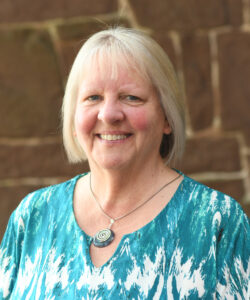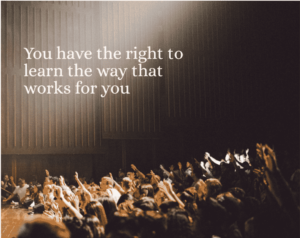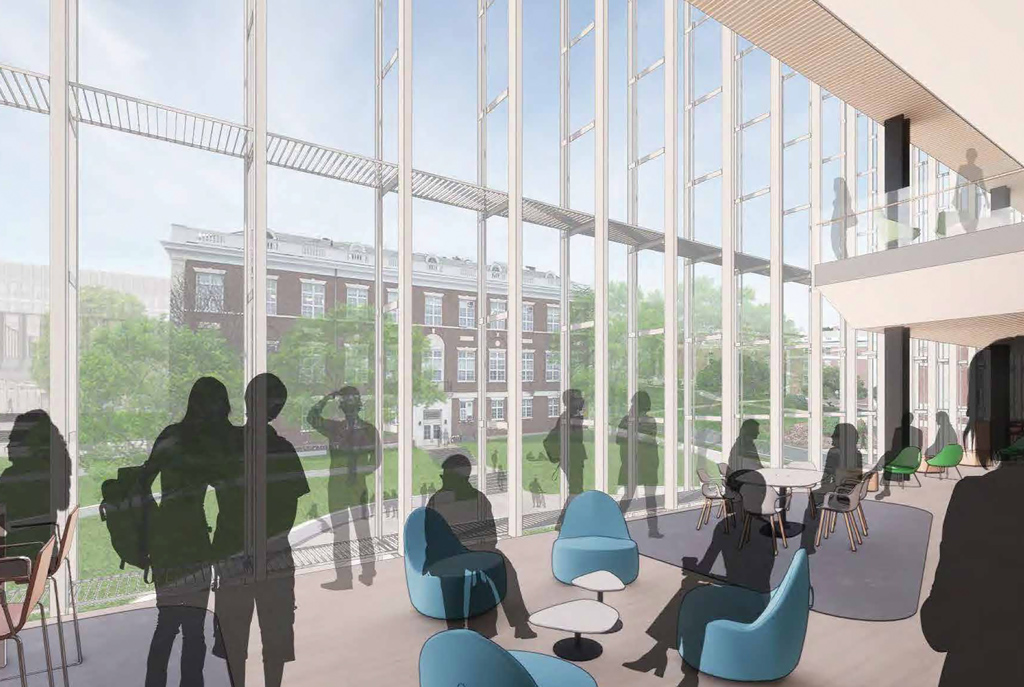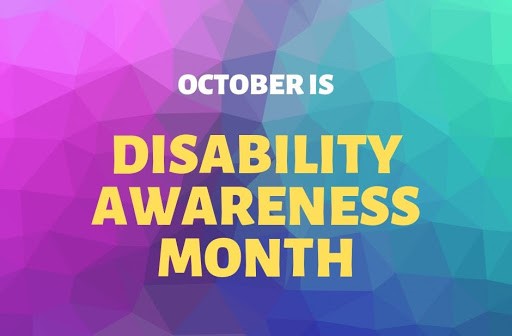College is hard enough on its own without having a disability. But for students who do have a disability or health condition that impacts their day-to-day functioning, college can feel infinitely more difficult at times. Students in STEM classes, especially, face a skew of deadlines that can seem never-ending, most notably if a student is in a lab class and missing a single lab may set them behind for weeks to come.
Dean for Academic Advancement Laura Patey said that around 20% of students across all disciplines receive academic accommodations. She elaborated on the process behind students receiving accommodations, explaining that students either identify the need for an accommodation directly to Accessibility Services, or they speak with a professor and are then referred to Accessibility. For most accommodations, a doctor’s note is needed.

“So the rules and laws that guide what we do at the post secondary level are about ensuring access,” Patey said. “Sometimes students come in and wonder what accommodations [they] can get for a particular disability that they have. [But] I don’t assume that everyone who experiences whatever that condition is…in the same way. And so I say to the student, ‘Explain to me what the barriers are for you? Where do you run into the challenges because of your disability?’ This is where we put in accommodations to ameliorate the barriers to access. And then it’s a much more engaging and interactive process.”
After working with Accessibility Services to come up with an accommodations plan which best meets their individual needs, the student receives a letter to give to their professor, and then the professor can make the necessary adjustments for the student’s needs.
Some common accommodations in the STEM fields include extra time on exams, leniency for absences if a student has a medical condition which can make attendance difficult, and adding extra blank space on assignments for students who have tracking or vision issues.
“[We have also helped] students in neuroscience courses, for example, who have had a harder time learning from a textbook and understanding the makeup of the brain and the functions of the aspects of the brain,” Patey explained. “Getting models and thinking creatively about how we create something that’s tangible, that you can hold onto and not see in a flat image in a book, can really help.”
Prospective biology and chemistry double major Kaylin Mahler ’26, who suffers from a chronic health condition exacerbated by stress and lack of sleep, commented on how dense the workload in STEM classes can be and how this affects the accommodations she needs.
“When I feel healthy, there are occasions where I spend hours working on just one problem!” Mahler said. “Therefore, it is extremely challenging to really focus on my work when I am encountering some sort of physical barrier. The flexibility with assignment deadlines has been so important for me because I really want to produce the best quality work that I am capable of. When I am not able to function at the same capacity as I normally can, it’s essential I rest rather than straining myself. It also takes away some of the stress associated with having such a heavy workload.”
Assistant Professor of the Practice in Molecular Biology and Biochemistry Cori Anderson has taught classes where a quarter of the class has received accommodations. Anderson says it varies from semester to semester but that she always works with students to make sure their needs are being met. Anderson also seeks to make her teaching practices more accessible.
“I’ve gotten in the habit of recording my lectures, I even started pre-COVID” Anderson said. “And I used to not make them available to students only if students were ill and had to miss class…but students have really appreciated the available recordings now. Because with so many students out with illness [due to COVID], it was really helpful. And that’s a practice that I plan to continue.”
However, recorded lectures do not function the same way as labs do, and missing labs is still a huge source of stress for students with accommodations.

“I do experience a lot of anxiety about missing my labs in particular,” Mahler said. “This is because they are very challenging to make up due to the nature of the experiments (e.g. certain materials necessary for the lab are only available for a certain amount of time). Missing just one lab could result in failing the class.”
Prospective neuroscience and education studies double major Ellie Pan ’25 suffers from chronic migraines and must miss class sometimes if she’s not feeling well. Pan emphasized how helpful recorded lectures have been to her academic success. She also mentioned that it can be trickier for her to navigate long-term assignments based on her accommodations and her health situation.
“It’s hard for me to justify if I have had enough time to complete an assignment, especially because my brain is such a stigmatized disability, where most professors who I talked to haven’t had a student talk to them about migraine as openly as I do, or it’s just something that they haven’t heard of being something to be accommodated before,” Pan explained.
Pan does her best to communicate with professors but can tell that sometimes they struggle to understand how her condition affects her ability to complete work, study for exams, and also have a life outside of being a student.
“It’s something that I’ve been working on trying to figure out a way to best communicate with my professors so that these accommodations make more sense to them and so that we can really have a more open conversation, especially when it comes to extended deadlines,” Pan added.
Mathematics and computer science double major Sam Feuer ’23 has a chronic health condition that permits him to receive homework extensions and/or extra help catching up for a class.
“My accommodations have been helpful in a variety of circumstances—from minor extensions due to doctor’s appointments to taking incompletes as a result of medical emergencies,” Feuer said. “Since my illness is unpredictable, my accommodations act as a safety net in case it suddenly worsens, which is helpful all of the time.”
However, Feuer explained that additional understanding on the part of professors would make the process of receiving accommodations feel a lot more comfortable.
“I would love to see more professors adopt more lenient policies regarding extensions and course attendance,” Feuer said. “I feel like many professors are hesitant about these policies, but they can go a long way to supporting students experiencing physical or mental health challenges.”
Additionally, some STEM spaces are not designed to accommodate for disabilities. Mahler explained that she’s noticed how inaccessible lab settings can be.
“In one of my lab courses, the stools are purposely designed to be uncomfortable,” Mahler said. “There’s also not enough stools in the classroom for every student. The intention behind this is that uncomfortable chairs encourage students to spend the majority of the lab standing and moving around the classroom. For someone who has trouble walking or standing for long periods of time, this is a major inconvenience and makes working in the lab much more challenging. When designing labs, the school should be more considerate of students with physical disabilities.”
While current lab spaces may not be designed with disabilities in mind, the upcoming new science center takes into account many factors regarding accessibility.

“In the design phase, there were lots of open spaces, lots of glass walls, etc,” Anderson said. “And one of the things that we brought forward was [that] we really need to think about where we put shades that are available. So if we need to have testing accommodations, we have spaces to actually have the students be in a true distraction reduced environment where there aren’t tons of students walking past.”
Patey has been involved in the new science center since the start of the design phase and has spoken with the architects multiple times to give feedback.
“But more importantly than my being involved, they involved students,” Patey said. “That has been the best….So there were students involved and giving feedback all along [about] everything from the colors involved to the types of furniture and placement to the floor plans and layout, the lighting, the signage and notifications that would be around everything.”
Science events are another area where improvement can be sought. Patey pointed out that there is a checklist for planning accessible events available on the University website. She encouraged all student and faculty groups planning events to refer back to it.
“I think what’s hard for me is if I really want to go to something, and I’m feeling unwell, that means I can’t go,” Pan said. “I know that it’s hard, especially with events that are more interactive or that require people to actually physically be there, like that’s very difficult to make accessible online. I don’t really think that anything can be done to make those events more accessible for me at least. But I definitely think that there should be some kind of program for students with disabilities in the STEM fields. I think that something I’ve learned as being someone with chronic migraine is that sense of community, and having people to talk to, can make a world of difference with my mental health and a lot of the other factors that surround my disability.”
Students seeking accommodations or looking to learn more about their options should contact Accessibility Services.


